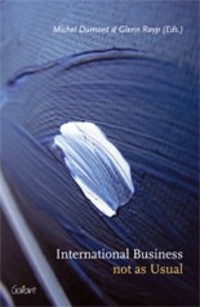Fine-Tuning Export Promotion Policies in Colombia

International economic integration often consists in countries strengthening economic links with a relatively small group of geographically close countries whereas links with more distant countries remain neglected. Regional agreements may actually reinforce such insider-outsider phenomenon. Though geographical and cultural distance substantially hampers international trade, the fragmentation of the world economy into trading blocs may result in detrimental lock-in effects and the disregard of existing opportunities. Belgium seems a rather illustrative case in point. As one of the most open countries in the world, the bulk of its international transactions occur within the EU and more specifically with its neighbouring countries. On the other hand it is often acclaimed that Belgium is not sufficiently seizing the trade and investment opportunities offered by the strong growing Newly Industrialising Countries, e.g. in South-East Asia. The original papers bundled in this book explore international business from different angles. A number of contributions consider possible ownership advantages in international business relations (e.g. awareness of cultural differences in advertising, valuable intangible assets or the role of electronic data interchange in supply chains) and how to actually measure business performance. Possible consequences of public policies with respect to state aid, international trade, export promotion and economic development are discussed, both from a theoretical perspective as from the point of view of specific emerging economies such as China, Colombia and South Africa.
